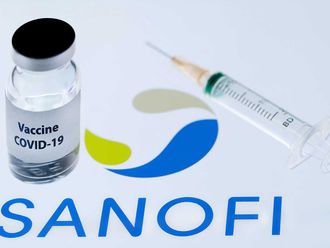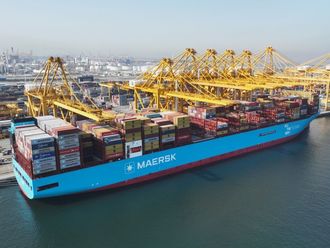London: The pound’s biggest rally in 24 years is spurring predictions that the worst is over for the beleaguered currency, at least in the short term.
Scottish money manager Kames Capital is turning “neutral and slightly positive” on sterling after holding an underweight position since Britain voted itself out of the European Union in June. Amplifying Global FX Capital says the UK’s improving economy and quickening inflation are boosting the case for higher interest rates and currency strength.
Sterling gained the most among Group-of-10 currencies against the dollar last week, after rallying the most since 1993 on Tuesday as UK. Prime Minister Theresa May pledged in a speech to deliver “a smooth and orderly Brexit.” She also said Parliament would vote on any agreement with the EU, boosting investor confidence that lawmakers’ scrutiny will ensure a deal that’s favourable for Britain.
“Certainly, in the short term, the worst is over for sterling,” Sandra Holdsworth, Edinburgh-based investment manager at Kames, said in a phone interview on Jan. 19. “We are not talking of a change in trend yet but, in the short term, we are more positive. Sterling is still a positive-carry currency. The economic backdrop has improved a bit, the expectations for interest-rate cuts have changed.”
The pound appreciated 1.1 per cent against the dollar last week to $1.2320 as of 4pm in London on Friday, its best five-day gain since the period ended December 2. It plunged 16 per cent in 2016, the most since the global financial crisis, amid concern Brexit will damage the UK economy and jeopardise London’s status as a global financial Centre.
Uncertainty Eases
The prime minister’s speech on Tuesday partially removed the uncertainty over government plans and buoyed confidence in the pound, according to Kames, which managed £51.3 billion ($63 billion) as of September. In addition, the interest-rate advantage over Europe and the current short-positioning of the market in the British currency are also seen aiding short-term sterling gains, according to the money manager.
Ten-year UK gilts yielded 1.43 per cent late Friday, compared with 0.41 per cent on similar-maturity German bunds. British manufacturing grew at the fastest pace in 2 1/2 years in December, according to data published earlier this month.
The UK “continues to show solid economic performance, and inflation above expected, both generating upside risk for rates and the exchange rate,” Greg Gibbs, director of Amplifying Global FX in Breckenridge, Colorado, said in emailed comments. “Brexit no longer appears to be a maverick move by a recalcitrant deserter, but an early move in a global trend towards nationalist anti-establishment politics that many countries, especially in Europe, must face.”
Still, the outlook is for the UK currency to remain volatile, according to Holdsworth at Kames. EU Commission Vice-President Valdis Dombrovskis said in an interview Thursday that European institutions “are not giving any statement or taking positions vis-a-vis the UK government at this stage, because this is now a UK domestic debate”.
“Challenges remain as the negotiation for Brexit is a two-way process,” Holdsworth said. “There is not much willingness from European politicians to be very accommodative to the UK in the short term.”












